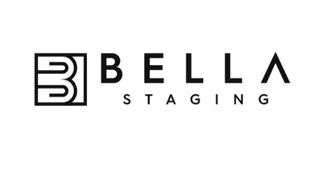More from Bella Virtual Staging USA
Related Blogs
Archivo
compartir social
How Real Estate 3D Rendering is Revolutionizing Property Sales
Cuerpo
Among these innovations, 3D rendering has emerged as a game-changer, transforming how properties are marketed and sold. Real estate 3D rendering is not just a tool for architects and developers; it is a powerful asset for real estate professionals looking to give potential buyers a realistic and immersive experience of a property. In this blog, we will explore how 3D rendering is revolutionizing property sales and why it has become indispensable in the modern real estate market.
Understanding Real Estate 3D Rendering
What is Real Estate 3D Rendering?
Real estate 3D rendering is the process of creating three-dimensional images or animations that depict a property in detail. These renderings can range from static images to fully interactive virtual tours, allowing potential buyers to explore every corner of a property before they set foot in it. Unlike traditional photography, 3D rendering can showcase properties that are still under construction or even in the planning phase.
How Does 3D Rendering Work?
The process of 3D rendering begins with creating a detailed 3D model of the property using specialized software. This model includes all architectural elements, from the structure itself to the smallest details like furniture and fixtures. Once the model is complete, textures, colors, and lighting are applied to make the rendering as realistic as possible. The final step is rendering the model, which produces the high-quality images or animations used in marketing materials.
Enhancing Property Visualization
Bringing Plans to Life
One of the biggest challenges in selling real estate is helping potential buyers visualize a property, especially if it is still under construction. 3D rendering addresses this challenge by providing a realistic, lifelike representation of the property. Buyers can see how a space will look once it is completed, including details like furniture placement, wall colors, and lighting. This enhanced visualization makes it easier for buyers to imagine themselves living in the space, which can significantly increase their interest in the property.
Showcasing Unique Features
Every property has unique features that make it stand out from the competition. Whether it's a stunning view, a luxurious kitchen, or a spacious living area, 3D rendering allows these features to be highlighted in a way that traditional photography cannot. Renderings can be customized to focus on specific aspects of a property, ensuring that its best features are showcased to potential buyers.
Improving Marketing Strategies
Creating High-Impact Marketing Materials
In today’s competitive real estate market, effective marketing is essential. 3D renderings provide real estate professionals with high-quality, eye-catching visuals that can be used across a variety of marketing platforms, from websites and social media to brochures and virtual tours. These visuals not only grab the attention of potential buyers but also convey a sense of professionalism and quality that can enhance the overall perception of the property.

Virtual Tours and Interactive Experiences
One of the most significant advantages of 3D rendering is the ability to create virtual tours. These interactive experiences allow potential buyers to explore a property at their own pace, moving from room to room as if they were physically present. Virtual tours are particularly valuable in today’s market, where many buyers prefer to view properties online before scheduling an in-person visit. By offering a virtual tour, real estate professionals can reach a broader audience and give buyers a more comprehensive understanding of the property.
Accelerating the Sales Process
Faster Decision-Making
3D renderings help potential buyers make faster, more informed decisions. When buyers can see a property in detail and explore it through a virtual tour, they are more likely to move forward with an offer. This is especially true for properties that are still under construction or renovation, where buyers might otherwise be hesitant to commit without seeing the finished product. By providing a clear and compelling vision of the property, 3D rendering can help speed up the sales process and reduce the time a property spends on the market.
Reducing the Need for Physical Visits
For international buyers or those located far from the property, 3D rendering offers a convenient way to view a property without having to travel. Virtual tours and high-quality renderings can give these buyers the confidence they need to make an offer remotely, reducing the need for physical visits. This can be particularly advantageous in today’s global real estate market, where properties are often purchased sight unseen.
Cost-Effective Marketing and Presentation
Saving on Staging Costs
Traditional property staging can be expensive and time-consuming, requiring furniture rentals and professional decorators. 3D rendering eliminates the need for physical staging by creating virtual environments that look just as realistic as the real thing. Virtual staging can showcase different design options, allowing buyers to see how a property can be customized to fit their tastes. This cost-effective approach can save sellers money while still providing the visual appeal needed to attract buyers.
Reusable Assets
Once a 3D rendering is created, it can be used repeatedly across different marketing campaigns and platforms. This reusability makes 3D rendering a cost-effective investment for real estate professionals, as the same renderings can be used for brochures, websites, social media, and more. As a result, 3D rendering provides a high return on investment, offering a versatile tool that can be leveraged in multiple ways.
Conclusion
Real estate 3D rendering is revolutionizing property sales by providing a powerful tool for visualization, marketing, and sales acceleration. From enhancing property visualization to creating high-impact marketing materials and reducing the need for physical visits, 3D rendering offers numerous benefits that can help real estate professionals close deals faster and more efficiently. As technology continues to advance, the role of 3D rendering in real estate is only expected to grow, making it an essential asset for anyone involved in property sales. Embracing this technology can give real estate professionals a competitive edge and help them meet the evolving needs of today’s buyers.










Comentarios